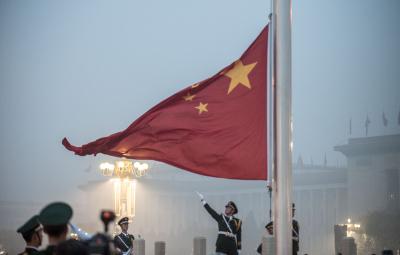China, under President Xi Jinping, is continuing with its ruthless clamping down of the private sector, which accounts for 80 per cent of the urban jobs.
Last week, the outspoken Chinese billionaire Sun Dawu, known to be speaking openly on issues relating to human rights and the early mishandling of Covid 19, was sentenced for 18 years in prison.
In the last few months, many top bosses have quietly stepped down. In May Zhang Yiming, the co-founder of ByteDance—the parent company of popular internet video brand TikTok announced that he would step down by the end of year.
“The truth is, I lack some of the skills that make an ideal manager. I’m more interested in analyzing organizational and market principles, and leveraging these theories to further reduce management work, rather than actually managing people. Similarly, I'm not very social, preferring solitary activities like being online, reading, listening to music and daydreaming about what may be possible,” Zhang said in a statement, which raised many eyebrows.
Also read: RCEP-the mega trade deal may have a short shelf-life as US mounts pressure on China
A series of resignations of top bosses of Chinese tech companies has taken place since business tycoon and co-founder of Alibaba Group Jack Ma went underground last October.
However, interestingly, just a month before that, a report carried by South China Morning Post noted that Xi in a meeting with the private entrepreneurs of the country, gave them an assurance that “they are a key part of the nation’s ‘socialist market economy’. The SCMP in the report noted that Xi asked the private sector to unite around the Communist Party, while assuring them of their importance to the country.
“Xi Jinping, long distrustful of the private sector, is moving assertively to bring it to heel,” the Wall Street Journal said.
An International Finance Corporation (IFC) report noted that an important outcome of market-oriented reforms in China over the past 20 years was the emergence of a significant private sector. Initially allowed only on the fringes of the economy, the private sector is a main pillar contributing about a third of the country's gross domestic product.
Also read: China Steps up extra-judicial detentions targeting foreigners during Xi Jinping’s “new era”
Data portal Statista said that a study by McKinsey & Company shows that just in the past 20 to 25 years, the share of Chinese urban employment supported by private enterprises more than quadrupled from just 18 per cent in 1995 to 87 per cent in 2018.
The portal also said that exports created by the private sector more than doubled from 34 per cent to 88 per cent in that period.
“The impact on the economy, especially jobs may be felt sooner than anticipated and this could be damning as the well developed, vibrant private sector in the country has contributed immensely in Beijing’s growth story,” an analyst told India Narrative.
Until Xi, China had managed to solve a major problem of non-democratic regimes, the transfer of power from one leader to the next. “Current president Xi Jinping, however, has arguably weakened that system by abolishing term limits, installing himself as president and party leader for life,” Statista noted.
“The problem with China is somewhat self-created. The private sector has been contributing to the Chinese economy while creating jobs but now it does not know how to handle its own private sector,” Subhomoy Bhattacharjee, Senior Adjunct Fellow at RIS (Research and Information System for Developing Countries) told India Narrative.




















